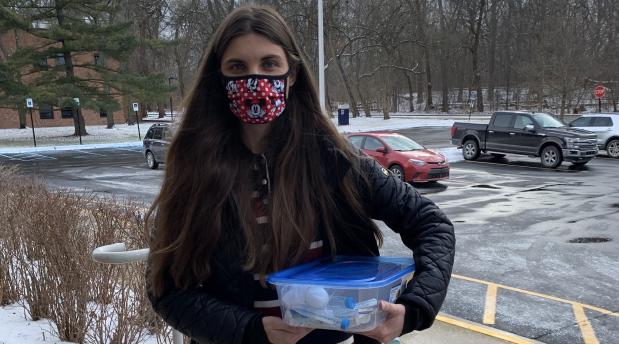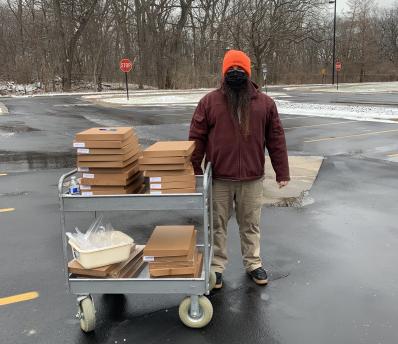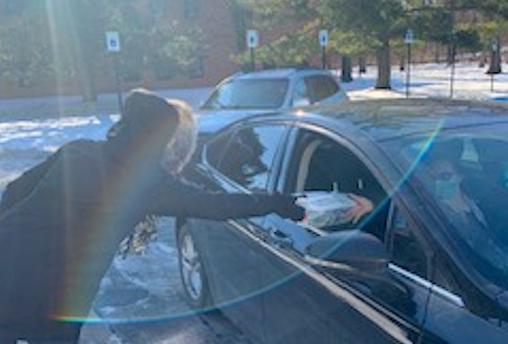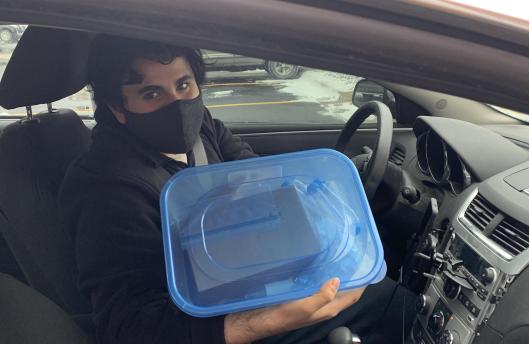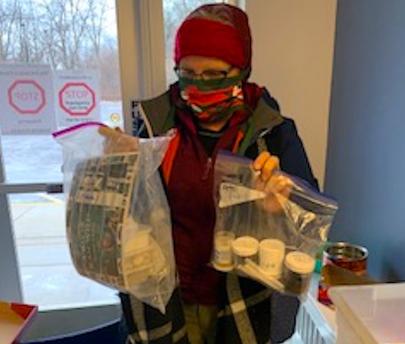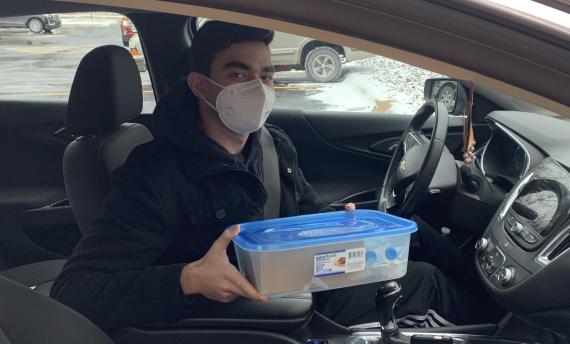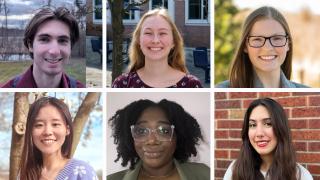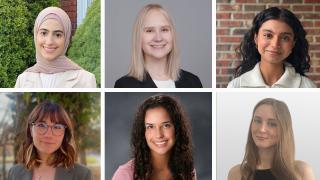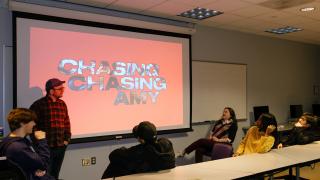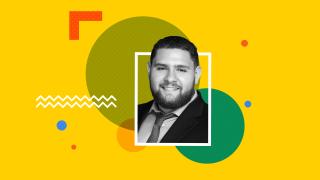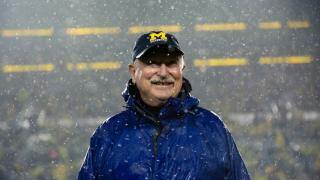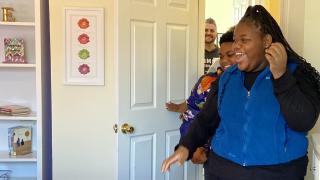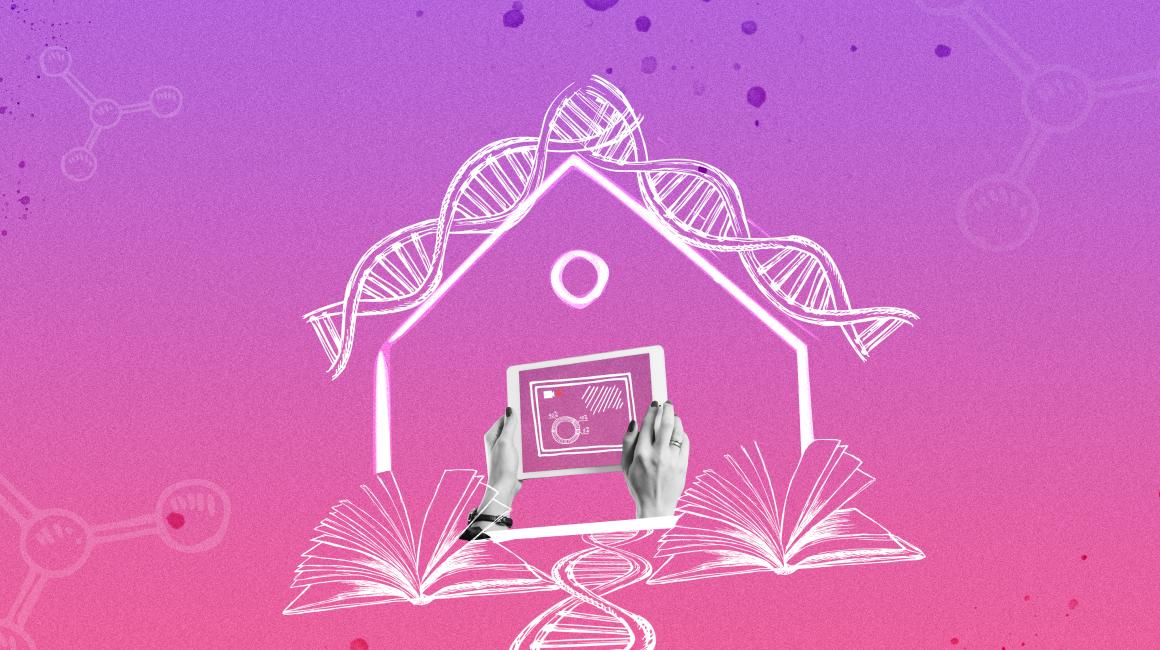
A lesson about fermentation and respiration leads to fresh baked muffins. Cell phones can transform into light-measuring spectrophotometers. Oil, water and a few kitchen items help explain polar and nonpolar surfaces.
This is science led by innovative educators who know lab work is an essential ingredient to academic success in science fields.
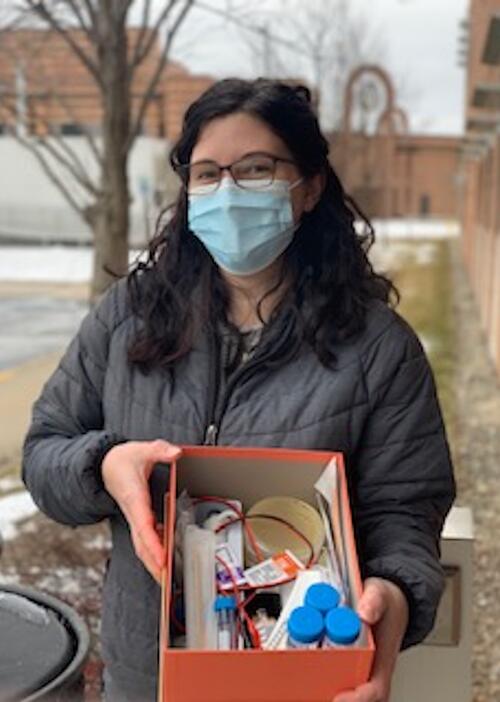
“Hands-on learning is so much more engaging for students and fosters active learning. Students are conducting experiments and gathering their own data as opposed to having data given to them,” says Biology Lecturer Judy Nesmith. “The hands-on element models the scientific method where students must make hypotheses, gather data and then analyze their data and draw conclusions.”
Biochemistry and Biology Professor Marliee Benore says the social distance challenges brought on by the pandemic led several College of Arts, Sciences, and Letters faculty to find ways to adapt their coursework to meet the academic needs of students.
Benore says hundreds of biology-focused kits were created in the fall and winter semesters. Geology professors distributed take-home rock, gem and mineral kits. Behavioral ecology courses are using live-streamed webcams from zoos to observe and test hypotheses for animal behavior studies. She says many CASL instructors have adapted — and continue to adapt — their courses to give students an engaging learning experience.
“We’ve spent a significant amount of time rewriting, creating and testing labs,” she says. “We want to get students back into the classrooms and labs at soon as it’s possible, but until then we will continue to find ways to meet learning objectives and teach critical skills.”
Junior Tejas Athavale, who is on the pre-med track, says he appreciates the customized kits to help him understand the body’s complex chemical processes in his BIO 210: Biochemistry course. When he opened the kit for the first time, he realized the effort that went into it.
“The kits are brilliant. My professor recreated a lesson typically carried out in a scientific laboratory so I could do it safely in my kitchen. These are not pre-packaged labs bought online; it’s customized to our lessons. You can tell the professors spent a lot of time putting these together,” Athavale says. “That pandemic has created challenges, but our professors are doing whatever they can to make sure that we get these lab concepts.”

